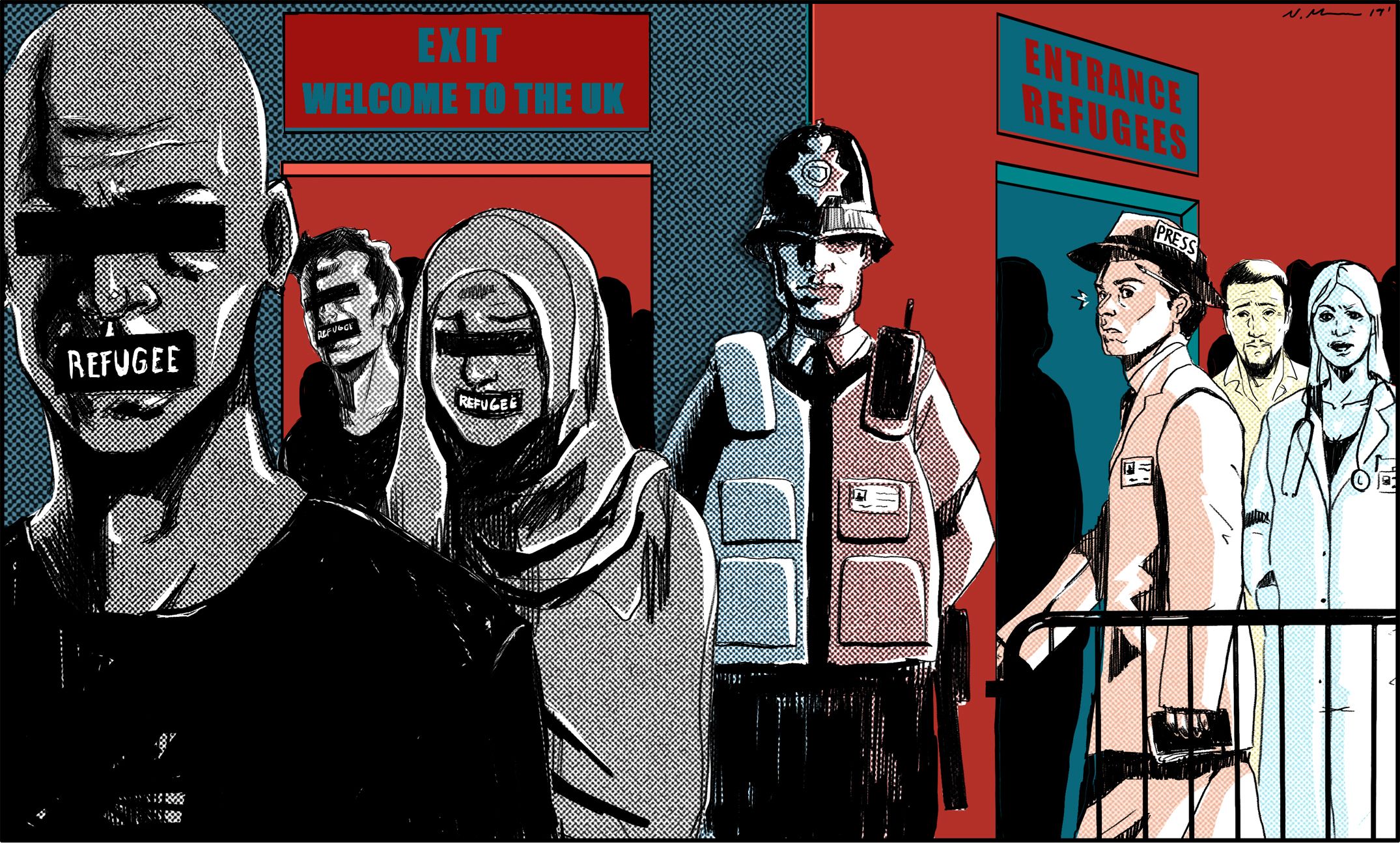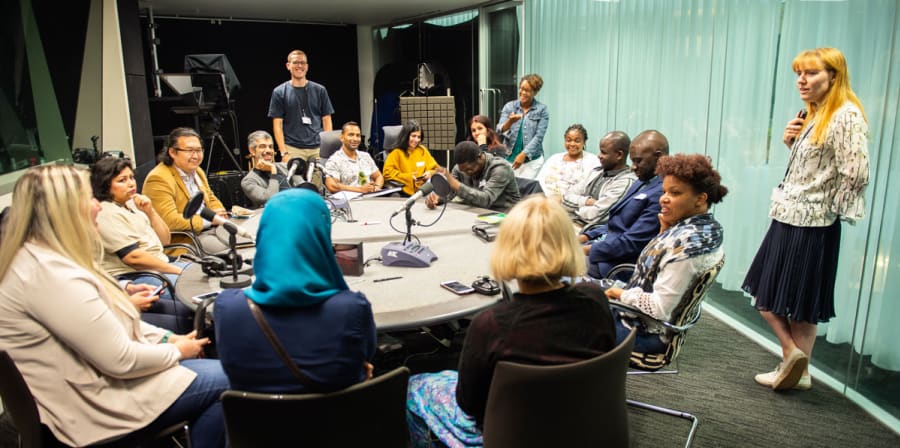KE Voices: Vivienne Francis on refugee journalism and meaningful collaborations

- Written byAnnika Loebig
- Published date 22 October 2021

Vivienne Francis is a Senior Lecturer in Social Justice Journalism and Reader in Knowledge Exchange (KE) at London College of Communication. In this conversation she talked us through the origins and impact of the Refugee Journalism Project, an initiative launched in 2016 to support refugee and exiled journalists restart their careers in the UK, in collaboration with industry partners and UAL students.
The Refugee Journalism Project at London College of Communication
Hi Vivienne! UAL has been involved in KE projects for a long time, but we’d like to ask: what does knowledge exchange mean to you?
For me, it's how through my role at the University I can work collaboratively with internal and external partners to address some of the societal challenges that we currently face.
I think the word 'partners' is very open, which encompasses everything from university students, members of the public, industry specialists, organisations, NGOs, cooperations. The nature of those relationships might be informal, it might be formal, it might be short term, it might be long-term collaborations.
What makes KE work is having relationships that are interdisciplinary because, in my opinion, they produce the best results. But the knowledge we generate isn't simply from the university to the public, or from the university to students — it's exchanged in multiple directions. So we all benefit, we all have something to learn or something to gain.
Journalism produces and packages knowledge in collaboration with others. Given your experience in both the media sector and the academic world, have you seen any similarities between the two?
I think there are so many parallels between knowledge exchange and journalism, because of the variety and the opportunities they both create.
Journalism for me is about opening a door. Very often you're not an expert in a specific topic, but you get to meet people through the course of telling a story — they are the experts that have firsthand experiences of different situations. That is an incredible richness that I really enjoy about journalism, which I've also found in KE.
I think the similarity between KE and journalism is also about relationship building. You have to be comfortable meeting people, you have to be excited about finding out someone else's perspective and story, and just be naturally curious.
The Refugee Journalism Project is a great example of how you’ve been building on those meaningful collaborations through KE. Can you take us through the journey of setting up the project?
It all started around 2015/2016, when we were seeing the mass movement of people across Europe. I was incredibly moved and motivated by that and started to think about what I could do within my own life to help, so I started to volunteer with the Migrant Resource Centre. At the time, we were also running some media projects to help people find their place in the UK, connect with others and develop communication skills, and I started coming across participants who were professional journalists.
For example, there was someone from Sudan who had been a leading reporter in his country and told me some incredible stories. He was unemployed and he struggling to find permanent accommodation in England, and I just thought there had to be way in which we could support him.
My background has always been around mentoring and helping people to access the industry, whether that's as a journalist or as an academic. So I thought there will be some way of creating this model where we could support people who had been professional journalists in their own country, and facilitate their entry into journalism in the UK, but also do it in a way that allows students to get involved as well.

That's incredibly inspiring! You mentioned there's a constant exchange of knowledge happening at RJP, what does that look like for those who get involved?
It's quite straightforward. For people with refugee backgrounds, we support them to develop their skills and knowledge. They get to join professional and social networks for journalists in the UK, and we also help them to get paid work so they can start developing editorial influence, which is very important for them — they constantly talk about building their confidence and their self-worth and their sense of belonging.
For UAL students and graduates who get involved, the Refugee Journalism Project is an opportunity to work closely with people with refugee backgrounds and also with our industry partners. It allows them apply their journalist skills in a real-world environment and it challenges the assumptions they might have around migration and asylum. It also helps them to develop professional networks — some students have received employment offers thanks to their work and contribution to the project.
Our industry parters are a crucial part of this project as well. They deliver professional workshops for us, and some UK journalists join as mentors for the participants. They've told us it's been very beneficial for them to hear first-hand stories about migration, and to understand what it means to be a refugee. Being part of RJP is also a good opportunity for our media partners to widen their talent pool and database with a more diverse body of journalists, and to start diversifying their editorial lense when it comes to reporting about migration and refugees.
Find out more about the Refugee Journalism Project and get involved
Explore other Knowledge Exchange initiatives happening at UAL
Let's collaborate! Get in touch with us: business@arts.ac.uk
KE Voices is a new series of interviews where UAL academics and members of staff talk about their involvement in Knowledge Exchange (KE) activities, reflecting on how creative thinking and practices can be applied to tackle real-world challenges in collaboration with businesses, charities, local communities and other education institutions.